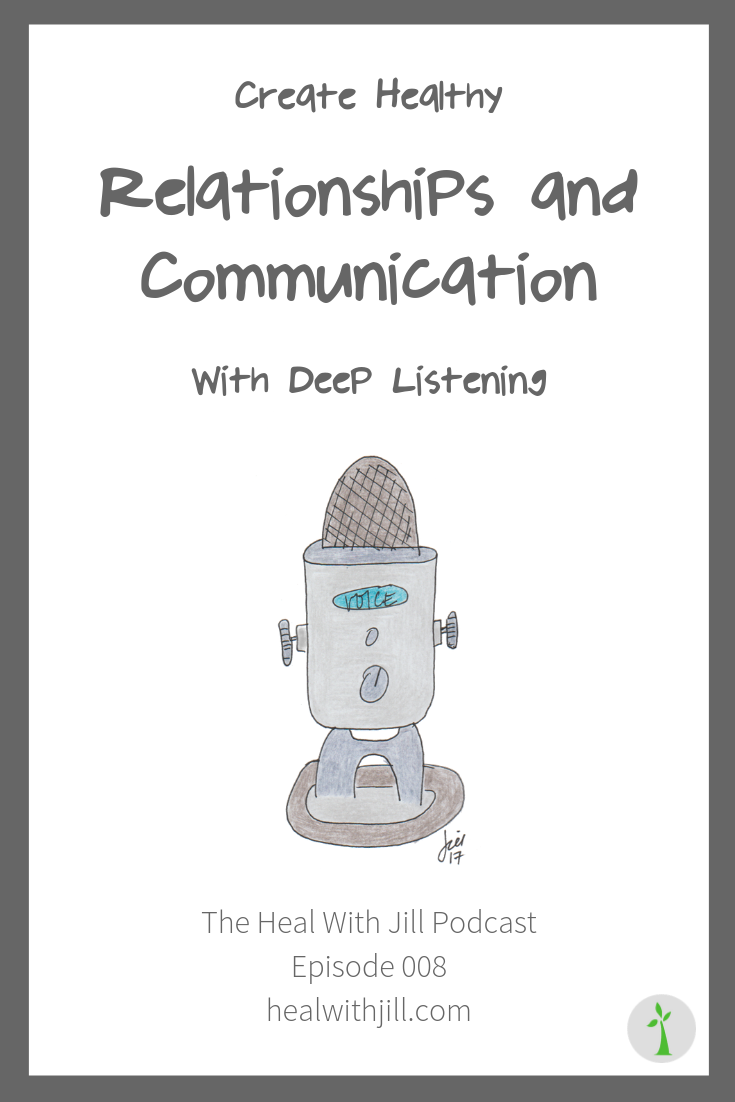008: Relationships and Communication
- Jill Yeiter

- Aug 6, 2019
- 2 min read

The fifth area on the wheel of health is relationships and communication.
My recommendation is to strive for harmony and interdependence in relationships so each person's needs are met and they feel seen and heard. Being seen and heard requires deep listening. Deep listening is a skill anyone can develop with practice. It can be helpful to begin by noticing both the way you listen to others and the way you are listened to.
Some indicators you are listening deeply include…
Allowing the other person to complete their thoughts without interrupting.
Reflecting back the general feeling or theme you are perceiving.
Asking questions that help clarify thoughts and feelings.
Allowing silence.
Refraining from trying to fix anything.
Showing empathy in your body language and voice.
Recognizing your own emotional response to what you are hearing without becoming reactive.
Sensing the underlying need or emotion.
One of my favorite resources for becoming a better listener is a book called “Focusing” by Eugene Gendlin.
In healthy communication, the speaker has equal responsibility to be honest and as clear as possible about what they are sharing. This usually includes directly stating or asking for what you need using a statement such as, “I need…” Sometimes this can be preceded by a statement such as “I can see” or “I feel”. In times when you feel challenged or your power slipping, this can be particularly helpful. Let’s look at an example.
You are trying to help a client understand some difficult results and she is becoming frustrated and short with you despite your best efforts. You could try saying…
“I can see this is challenging.”
“I feel it may be best to stop for now. You are welcome to take the results with you and contact me with questions.”
“Please excuse me, I need to move on to my next appointment now.”
(Physically get up and make a move towards the door and hold it open.)
This strategy helps diffuse an escalating situation without assigning blame or becoming aggressive, while allowing you to be appropriately assertive. You can use it in various relationships and situations. The general format includes…
“I can see…”
“I feel…”
“I need…”
Exit strategy if needed
Healthy relationships are essential for our overall well-being. This does not mean conflict will not arise, opinions won’t differ, and needs won’t vary. However, when there is honestly there can be resolution and with tools like deep listening and using “I” statements conclusions can be reached in respectable ways that move you in the direction of harmony.
Resources used for this episode:
The Mindful Diet by Ruth Wolever, Beth Reardon, and Tania Hannon
Focusing, Eugene Gendlin
Yours In Health,





Comments